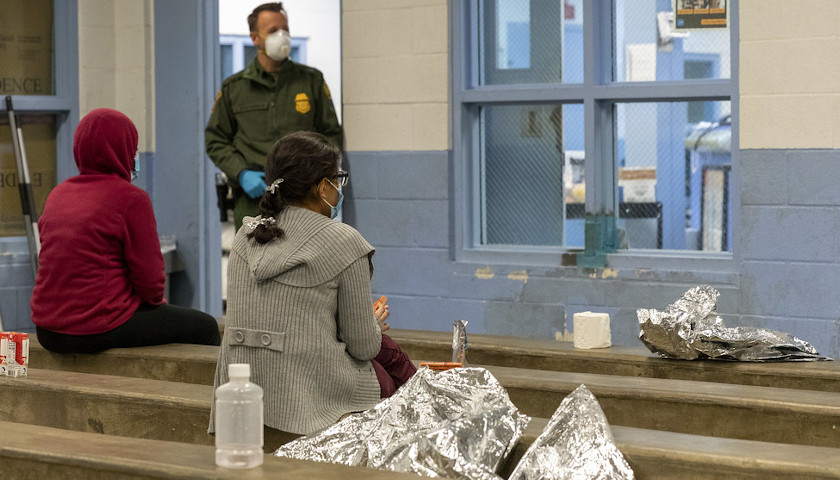by Kaylee Greenlee
A pilot program to collect DNA samples from individuals in Customs and Border Protection custody will be fully implemented on Dec. 31, officials announced Thursday.
 The pilot program began in January of this year and was given three years to meet the legal requirements to implement national collection, according to CBP. The program was expanded in monthly phases and is on track to reach nationwide operation capacity by the end of this year.
The pilot program began in January of this year and was given three years to meet the legal requirements to implement national collection, according to CBP. The program was expanded in monthly phases and is on track to reach nationwide operation capacity by the end of this year.
The samples will be collected from illegal immigrants, U.S. citizens and legal permanent residents between the ages of 14-79 who are facing federal charges, according to CBP. Samples will also be collected from illegal immigrants who are being processed for inadmissibility or removal and U.S. citizens with outstanding federal warrants.
NEW: Immigration and Customs Enforcement officials are expected to begin collecting the DNA samples of people arrested across the country later this year, according to two former Department of Homeland Security officials with knowledge of the program.https://t.co/WVSLzjFJeD
— Hamed Aleaziz (@Haleaziz) September 18, 2020
The program was created to collect DNA samples from individuals in custody for the Combined DNA Index System, according to Customs and Border Protection (CBP). The agency does not store, use or maintain the samples, which are submitted to the FBI.
“The Department of Homeland Security (DHS), which includes CBP, had been exempt from DNA collection since 2010 due to operational exigencies or resource limitations; however, on March 9, 2020, the Department of Justice (DOJ) published a final rule that eliminated the DHS discretion to exclude DNA collection, effective April 8, 2020,” CBP said in a press release.
CBP collects DNA samples from people who are arrested, facing or convicted of criminal charges, or illegal immigrants who are detained in compliance with the DNA Fingerprint Act of 2005, according to CBP.
CBP will not collect DNA samples from immigrants. who are being processed or who are legally in the U.S., immigrants being considered for admission at a port of entry, or if there is already a profile associated with the individual, according to CBP.
– – –
Kaylee Greenlee is a reporter for the Daily Caller News Foundation.





